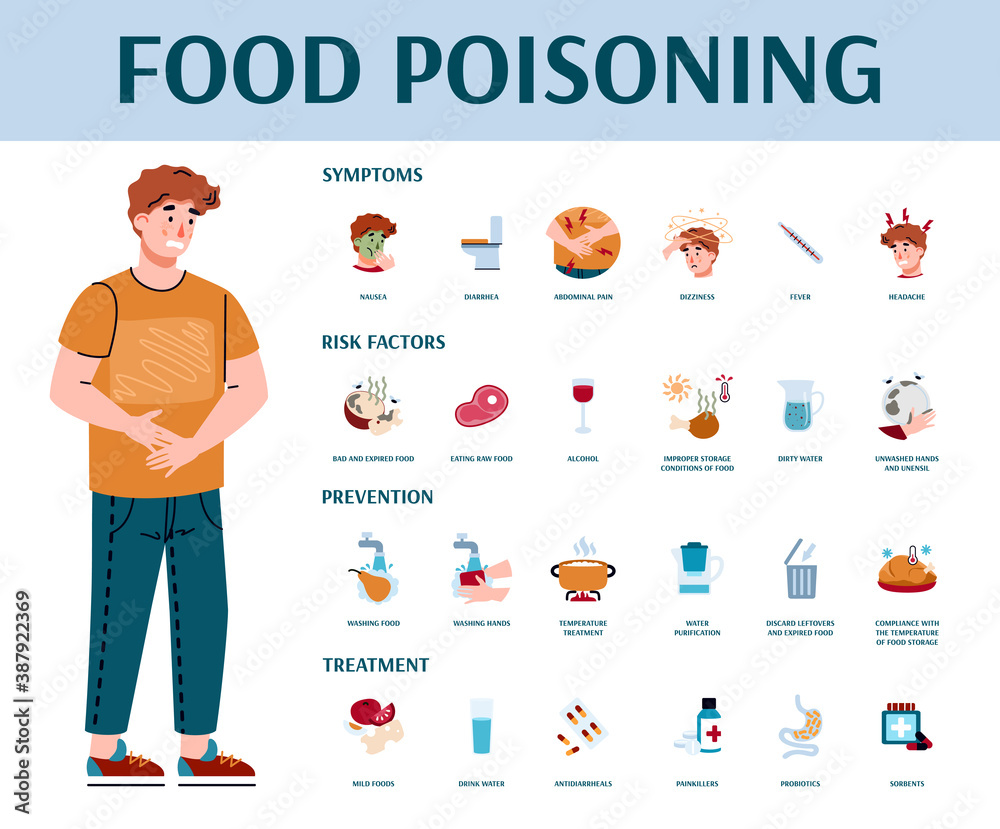Buzz Haven: Your Daily Dose of Trending News
Stay updated with the latest buzz in news, trends, and insights.
Dinner or Disaster: How to Avoid Food Poisoning Pitfalls
Discover essential tips to dodge food poisoning pitfalls and ensure your dinner stays delightful, not disastrous!
Top 10 Common Food Poisoning Myths Debunked
Food poisoning is a serious public health concern, yet many misconceptions surround it. One prevalent myth is that food poisoning only occurs during the summer months when warmer temperatures abound. However, it can happen year-round, as bacteria and viruses thrive in a range of conditions. Understanding this can encourage people to practice safe food handling at all times, regardless of the season.
Another common myth is that washing raw meat will make it safer to eat. In reality, washing can splatter bacteria onto surfaces and other foods, increasing the risk of cross-contamination. Instead, focus on cooking foods to the appropriate temperatures to kill harmful pathogens. Debunking these myths is essential for promoting food safety and protecting yourself from foodborne illnesses.

How to Safely Handle and Store Leftovers
Handling leftovers safely is crucial to preventing foodborne illnesses. First, it's important to cool leftovers quickly; ideally, they should be refrigerated within two hours of being served. Divide large portions into smaller, shallow containers to speed up the cooling process. Always ensure your refrigerator is set to 40°F (4°C) or lower to maintain food safety. When reheating leftovers, heat them to an internal temperature of 165°F (74°C) to kill any harmful bacteria that might have developed.
When it comes to storing leftovers, proper labeling is key. Use airtight containers and label them with the date and contents to keep track of freshness. Leftovers should generally be consumed within 3 to 4 days for best quality. If you know you won't eat them in time, consider freezing them instead. Foods can be frozen for 3 to 4 months without significant loss of quality. Remember, when consuming frozen leftovers, they should be reheated directly from the freezer or thawed in the refrigerator before reheating.
Are You At Risk? Understanding Food Poisoning Symptoms and Prevention
Are you at risk? Understanding food poisoning symptoms is crucial for safeguarding your health. Food poisoning can occur due to consuming contaminated food or beverages, leading to various unpleasant symptoms that can range from mild to severe. Common symptoms include nausea, vomiting, diarrhea, and stomach cramps, which can appear within hours or days after eating contaminated items. If you experience severe symptoms like a high fever, dehydration, or persistent vomiting, it's essential to seek medical attention promptly to prevent complications.
Prevention is key to avoiding food poisoning. Here are some effective tips to keep in mind:
- Wash your hands frequently, especially before handling food.
- Ensure that food is cooked to the appropriate temperature to kill harmful bacteria.
- Avoid cross-contamination by keeping raw and cooked foods separate.
- Store food at the correct temperature to inhibit bacterial growth.
By understanding the symptoms and implementing these preventive measures, you can significantly reduce your risk of food poisoning.